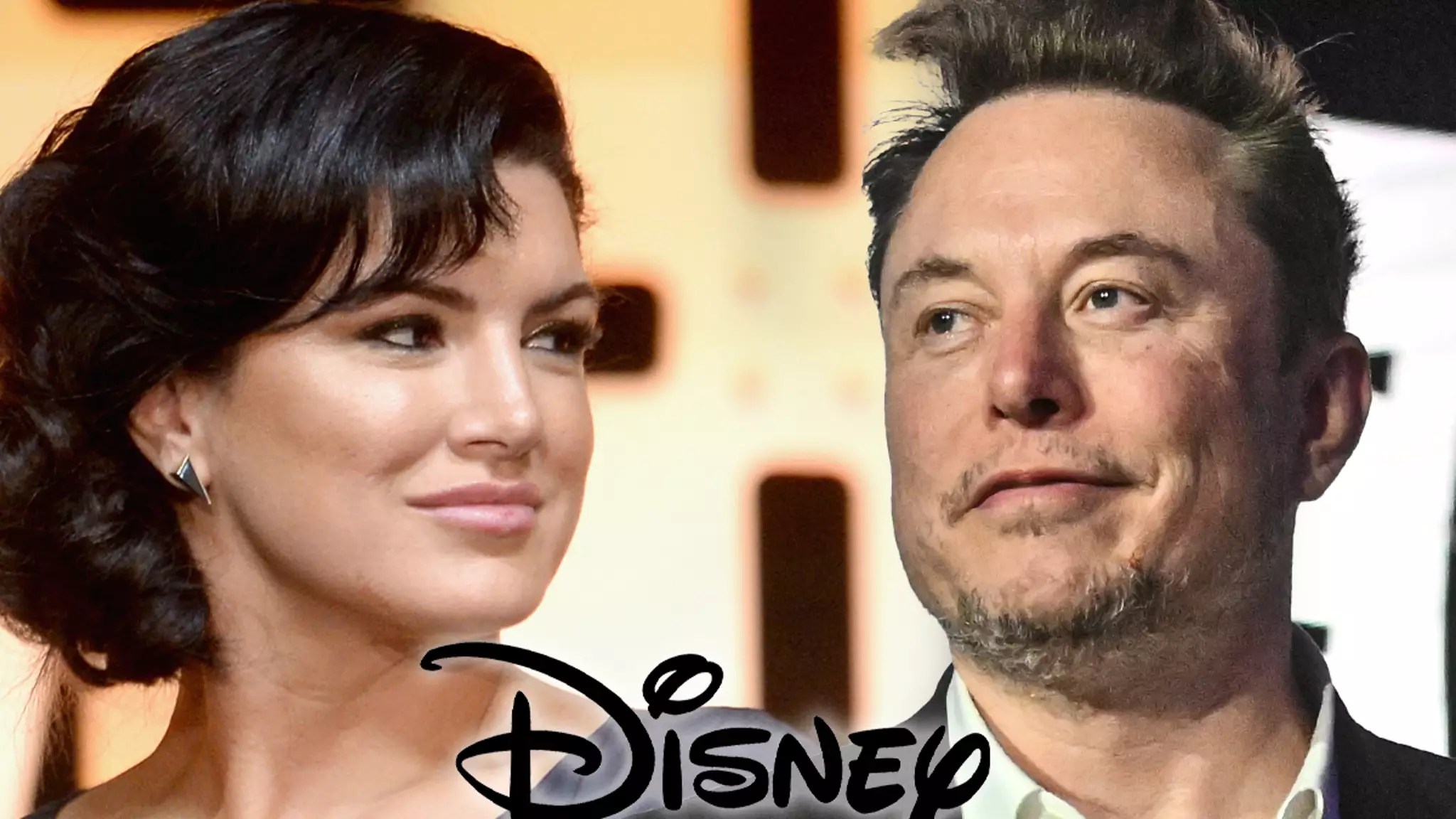It’s no secret that politics can be a divisive topic, especially in today’s increasingly polarized world. And when those opinions seep into the world of entertainment, the consequences can be severe. Such was the case for actress Gina Carano, who recently filed a lawsuit against Disney, alleging that she was wrongfully terminated from her role in “The Mandalorian” due to her political views. This bold move has garnered support from unexpected sources, including Tesla CEO Elon Musk. Let’s delve deeper into the implications of this lawsuit and explore the larger issue of expressing political opinions in the workplace.
According to court documents obtained by TMZ, Carano claims that she was unjustly fired by Disney in 2021 amidst the COVID-19 crisis for sharing her political opinions on social media. She argues that her male counterparts, who made similar posts, did not face the same consequences. Carano asserts that she was dismissed for not conforming to the “progressive orthodoxy” of the company and the public at large, particularly regarding COVID-19 policies. Specifically, she cites a social media message she posted comparing the persecution of Jews during the Holocaust to the treatment of individuals discussing COVID-19 and holding conservative views.
While Disney criticized Carano at the time for what they deemed as “denigrating individuals based on their cultural and religious identities,” Carano contends that her intention was not derogatory or offensive. She insists that the true intent of her post was lost in context, shifting the focus away from her intended message. Additionally, Carano claims that her termination was not performance-related but solely based on her expressing politically unpopular and contrary opinions to Disney’s. She firmly believes that such an act is illegal.
Moreover, Carano highlights the fact that her male co-stars also made politically charged comments during that time. For instance, Mark Hamill faced accusations of posting a transphobic tweet, yet Disney accepted his explanation and moved forward without consequence. Carano’s lawsuit suggests that she faced differential treatment compared to her male counterparts, further exacerbating the alleged injustices she claims to have endured.
Carano asserts that her career suffered gravely as a result of her termination, leading to significant financial losses. Prior to the political controversy, her professional trajectory seemed promising. Consequently, she is seeking unspecified damages for the harm inflicted upon her. Remarkably, the lawsuit has gained support from unexpected quarters. Elon Musk and his company X Corp have financially backed Carano’s legal action, stating that it aligns with their commitment to freedom of expression and the right to work without intimidation, harassment, or discrimination.
This lawsuit raises pertinent questions about the boundaries of expressing political opinions in the workplace. As society becomes increasingly sensitive to social and political issues, it is crucial to consider the potential ramifications that sharing personal beliefs can have on one’s professional life. While individuals have the right to express their opinions freely, they must also be mindful of the consequences that can arise in their chosen career paths. Striking a delicate balance between personal beliefs and professional obligations is becoming increasingly challenging.
The outcome of Gina Carano’s lawsuit against Disney will undoubtedly be closely observed, as it has the potential to set a precedent for future cases involving freedom of expression in the workplace. Whether the court finds merit in Carano’s claims or deems them unsubstantiated, this legal battle serves as a cautionary tale for those in the entertainment industry and beyond. It highlights the delicate nature of political discussions and urges individuals to exercise prudence when expressing their viewpoints, mindful of how they may be interpreted by their employers and the public at large.
Gina Carano’s decision to sue Disney for wrongful termination has thrust the issue of expressing political opinions in the workplace into the spotlight. While her case may be unique, it raises broader concerns regarding the potential consequences of voicing personal beliefs in a professional setting. As society grapples with these complex challenges, it is essential to foster a culture that embraces diversity of thought and allows open dialogue while respecting the boundaries that ensure inclusivity and equality for all.







Leave a Reply